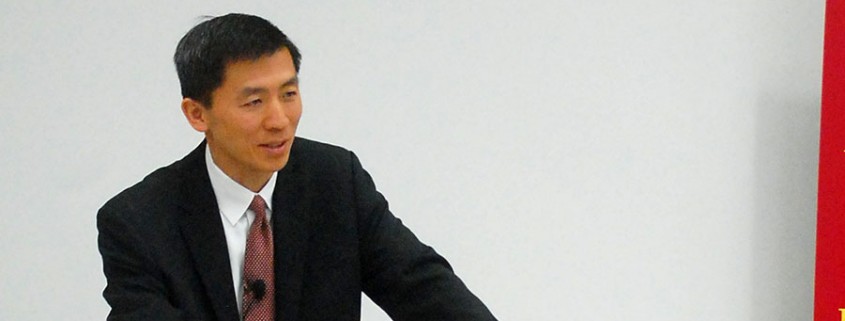California justice speaks at law school
Goodwin Liu, an Associate Justice of the California Supreme Court gave a lecture at the USC Gould School of Law Thursday. The lecture was attended by students and faculty members and is part of the Neiman-Sieroty Lecture series, an endowed series named after Gould graduates Allen Neiman and Alan Sieroty.
Liu was sworn in as an associate justice in September 2011 and authored six unanimous decisions in his first year. Prior to joining the court, Liu clerked for U.S. Supreme Court Justice Ruth Bader Ginsburg, worked for law firm O’Melveny & Myers and taught at UC Berkeley Boalt School of Law.
Liu’s lecture, “State Courts, State Constitutions and Individual Rights” was inspired by “State Constitutions and the Protection of Individual Rights,” a Harvard Law Review article by the late Justice William Brennan.
“Over the years, this article by Justice Brennan has spawned very expansive literature on judicial federalism,” Liu said.
Liu used the article as a springboard to explain his views on the role of state courts. He believes that state courts shouldn’t feel obligated to adhere strictly to federal precedent in regards to important issues.
“Many of our basic rights and liberties are protected by similar language in the federal and state constitutions,” Liu said. “State courts and federal courts can and do have principled disagreements on the meaning of those rights and liberties.”
Given the policy changes the Trump administration may implement, students found Liu’s lecture intriguing. Dylan Bonfigli, a third-year law student, finds the dynamic between state and federal courts interesting.
“I definitely think his lecture is relevant,” Bonfigli said. “One of the main parts [of the lecture] is when the federal government and Supreme Court don’t protect rights in a way the public may want, the state courts can step in to provide greater rights than the federal government.”
Although he supports states’ rights to make independent decisions, Liu argued against the romanticization of an exclusive state culture that doesn’t take into account what other states are doing. Instead, he advocates for states promoting their interpretations of American values.
“People say things like, ‘California’s the center of the resistance to the new administration,’” Liu said. “But I don’t think these claims are properly understood as claims about California having a distinctive set of values. Rather, California is arguing for its best version of American values. It is saying the rest of the country should follow it.”
Emily Loynachan, who graduated with a master’s degree from the USC Davis School of Gerontology, said she found the lecture compelling for its emphasis on the relationship between the general public and the states, as well as the relationship between states and the government.
“I think his reflections on inclusivity and dialogue and community and [in] some cases, re-imagining political protocols and language are really critical, especially today,” Loynachan said.


California – justice, now that’s an oxymoron if I ever heard one.